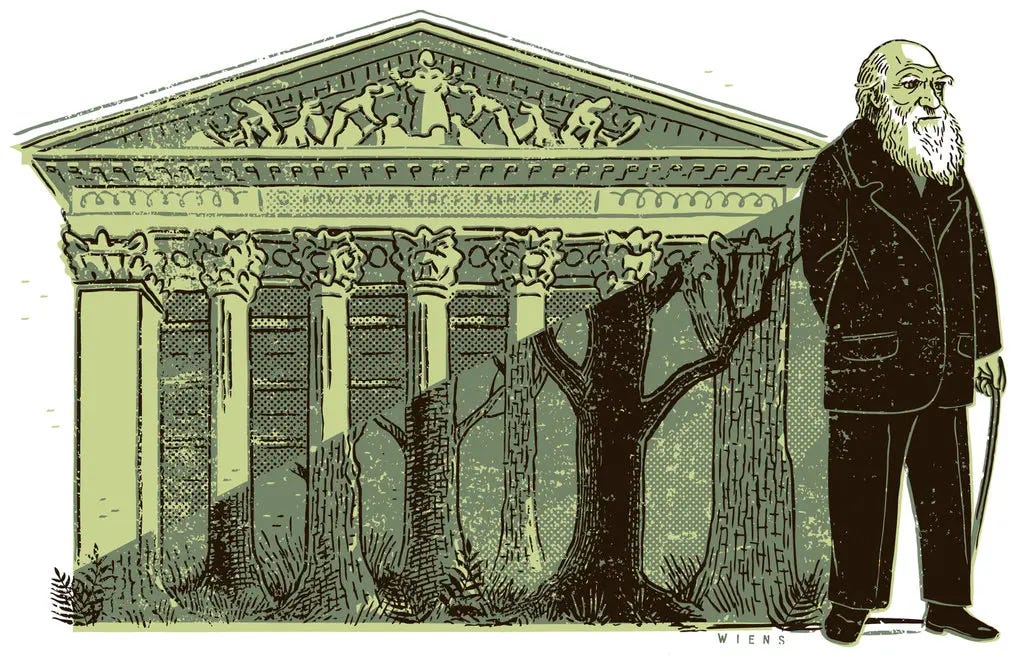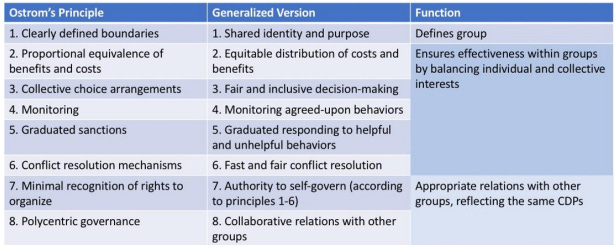Mind Matters is a newsletter written by Oshan Jarow, exploring post-neoliberal economic possibilities, contemplative philosophy, consciousness, & some bountiful absurdities of being alive. If you’re reading this but aren’t subscribed, you can join here:
Dear fellow humans,
Just a quick note today. I’ve published a new episode of the podcast. It’s a conversation with David Sloan Wilson, an evolutionary biologist who, over the past decade, has taken an interest in studying economics. This is good, because economists apparently have a lot to learn from evolutionary scientists.
We discuss his recent paper, coauthored with Dennis Snower, Rethinking the Theoretical Foundations of Economics I: The Multilevel Paradigm.
You can find the episode, more context, and even an almost-decent AI-generated transcript (thanks to the generosity of the show’s supporters on Patreon) on the show page here.
Or, if you’d prefer to dangle your toes in the audio stream, here’s a snippet:
…
The Multilevel Paradigm
The proposed ‘multilevel paradigm’ begins from a simple enough premise. Neoclassical economics – the orthodox paradigm that is just now faltering – is rooted in equilibrium equations lifted from a physics textbook in the 19th century (see: Eric Beinhocker’s The Origin of Wealth).
Ever since, economists have made pretty dazzling improvements and adjustments, alongside new theories and equations, to compensate for the rigidity imposed by the paradigm’s origin and methodology.
But the economy is not a system tending towards equilibrium. It’s a complex, dynamic, and evolutionary system always in flux. So, what if instead of making incremental improvements, we subbed in a new basis for economics altogether?
Wilson & Snower’s paper attempts just that. They swap out physics for evolutionary science. Instead of modeling the economy as an equilibrium system, they conceptualize it as an evolutionary system driven by the Darwinian triad of variation, selection, and repetition.
Instead of modeling society as a collection of rational, atomized individuals endeavoring to maximize their own utility, they see humans as fundamentally social, and individuals as creatures that are formed by the social groups they’re enmeshed in.
…
So What?
Moving beyond theory, what kind of action does the multilevel paradigm motivate?
Another way to describe the multilevel paradigm is to say that what we ought to be doing is designing institutions at every scale – from chess clubs to planetary governing councils – that bias groups towards cooperative behavior (David has famously called this “prosocial” behavior).
Their guide here is the late political scientist, and Nobel laureate in economics, Elinor Ostrom. She went into groups around the world managing resources as a commons, and derived a set of ‘core design principles’. Groups that followed these principles tended to successfully manage their resources (contradicting the infamous ‘tragedy of the commons’, which we should note is pretty thoroughly debunked, even by the guy who coined the term).
In their paper, David & Dennis generalize these principles, so that they can be used as design principles for any group, no matter the purpose:
In our conversation, David provided a few examples across different scales of what implementing these looks like in action, from a school, to a manufacturing plant, to a city. In part II of their paper (not yet released), they’re slated to provide an avalanche of examples.
Towards the end of our conversation, we drifted away from the details. For David, evolutionary science offers not only a new way to practice economics, but a framework to foster a synthesis between science and spirituality.
Scaling up cooperation (as I chronicled with Michael Levin) is scaling up the boundary of what counts as an ‘organism’. Beyond a certain threshold of cooperation within groups, they begin to look like one, singular entity. As David writes:
“Our journey ends with a reflection on how the secular imagination and the religious/spiritual imagination can converge on the conscious evolution of our collective future. It is striking how these two imaginations often seem at odds with each other, yet both arrive at the same conclusion: that the concept of “organism” has a movable boundary, which must be expanded to solve the problems of our age.”
This was a really lovely conversation, and I’m looking forward to parts II & III of their collaboration.
…
Down the Pipeline
I’m *so* close to being finished with an essay on value theory. It’s been many months, both infuriating and invigorating.
It turns out, while economists have given up on value theory altogether, cognitive scientists (enactivists in particular) have been plugging away on a biologically-grounded theory of value. I think we can pick up their work, fiddle with it a bit, and draw a line straight through into economics. I’m excited to publish it. But until then, here’s a morsel from the trail I’m following:
“The primordial structure of value … manifests in what can now be called the subjective dimension even for the simplest organisms … A world without organisms would be a world without meaning; and it is in life’s incessant need, that a subjective perspective is established.” (source)
Until next time,
Oshan.

